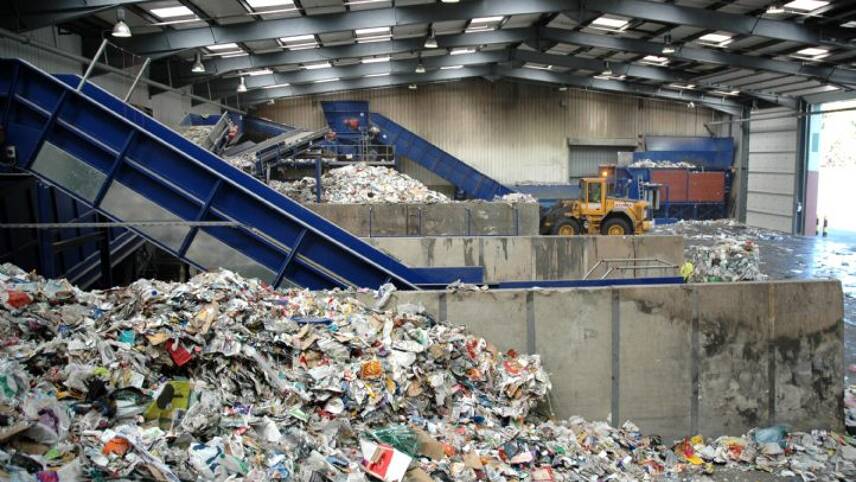Register for free and continue reading
Join our growing army of changemakers and get unlimited access to our premium content

UK recycling rates for plastic packaging have stagnated at between 38% and 45% for several years
With the UK producing more than 3.3 million tonnes of plastic packaging waste every year – of which two-thirds are exported for recycling abroad – policymakers must now accelerate the development of a “radical and circular” UK plastics plan which accounts for the increasing number of recycling market closures or sanctions being made by developing nations.
That is according to a new report on plastic waste management policies, which was published today (12 February) by a coalition of 12 cross-party MPs and researchers at Policy Connect.
Produced after a six-month enquiry by Policy Connect researchers, the ‘plastic packaging plan’ report calls on Ministers to implement a “bold national policy framework” for plastics, including a 2030 goal of achieving ‘net-zero’ plastic waste export status.
This move, the report claims, would “boost domestic infrastructure investment, innovation and green jobs” while reducing the UK’s marine waste footprint, fostering a sense of pride among the British public and, ultimately, spurring a nationwide shift towards circular economy models.
Environmental Audit Committee (EAC) chair and report signatory Mary Creagh MP said the policy could also require the Government to reverse some of its previous waste management decisions -including the Treasury’s choice not to introduce a 25p ‘latte levy’ – while spurring faster progress towards “home-grown solutions” like a nationwide deposit return schemes.
“Exporting two-thirds of the UK’s plastic waste overseas is bad for jobs, business and our environment,” Creagh said. “We can and must transition from exporting our plastic waste problem to growing our own solutions.”
At present, around 48% of all packaging recovery note (PRN) purchases by UK-based companies are believed to be made abroad, with recent research from the National Audit Office (NAO) concluding that packaging exports have increased six-fold since 2002 to reach £50m in 2017.
The money raised through these PRNs is invested in infrastructure improvements in nations which process the waste – funding which several campaign groups have argued would be better spent in bolstering the UK’s recycling capabilities ahead of Brexit.
These calls to action have already spurred the likes of Princes and Danone to pledge to reduce their reliance on export PRNs, while a group of MPs have begun urging policymakers to implement laws which stop the UK from “passing the plastic buck” to the world’s poorest communities.
Plastics budgets
According to Policy Connect, the introduction of a ‘net-zero’ plastic export target could pave the way for the Department for Environment, Food & Rural Affairs (Defra) to introduce legally binding and gradually increasing targets for recycling levels – in a similar fashion to the carbon budgets outlined in the Climate Change Act.
Such targets should span until 2035 or beyond, in order to give clarity and stability to investors and other plastic industry stakeholders, the report recommends, and should be at least as ambitious as those outlined in the EU’s Circular Economy Package. Published last year, the Package states that EU member states must achieve a 70% recycling rate for packaging by 2030.
“Getting plastic packaging out of the residual waste stream will require coordination across the whole value chain – from producers through to waste managers, with consumers playing their part,” the report states.
“Long range, ambitious recycling targets are a key first step to ensure the whole value chain is working together. Well-designed policy and regulation can bolster voluntary action and ensure that no businesses free-ride off the hard work of others.”
The report additionally highlights the success of the Climate Change Act’s carbon budgets as the result of “cross-party support for a renewed approach”. If such consensus can be fostered for plastic legislation, it claims, the strategy will “stand the test of time”.
Solving the recycling puzzle
The report comes at a time when UK recycling rates for plastic packaging are stagnating between 38% and 45%, despite the fact that 99% of local authorities now collect plastic bottles for kerbside recycling and 72% collect pots, tubs and trays.
According to Policy Connect, the causes of this challenge are multifaceted and include customer confusion about differing on-pack recycling labels (OPRLs), a lack of unified sorting and collection systems and public “apathy” or distrust in local authorities, which are not currently required to set local-level recycling targets.
The Government could reduce these issues by introducing a mandatory, consistent OPRL system, implementing a unified national collection system and working with local councils on behaviour change schemes, the report states.
The document additionally criticises manufacturers for producing packaging using materials which cannot be processed in existing recycling infrastructure – a disconnect which causes waste leakage by failing to help companies frame these waste streams as a valuable resource.
It urges the Environment Agency (EA) to collaborate with the plastics industry to publish an “approved list” of recyclable materials and packaging formats to help combat this issue, noting that such a document should be updated as technology advances. Such a move is also being advocated by a host of UK packaging organisations, including the likes of WRAP and the Industry Council for Packaging and the Environment (INCPEN).
The report arrives shortly after a recent study from the Local Government Association (LGA) found that most local authorities believe they have done all they could to drive plastics recycling rates up. The LGA claims that the most plaguing issues for councils and waste management firms alike are the fact that most packaging recycling streams contain several different polymers – with many being low-grade or hard-to-recycle.
Sarah George


Please login or Register to leave a comment.